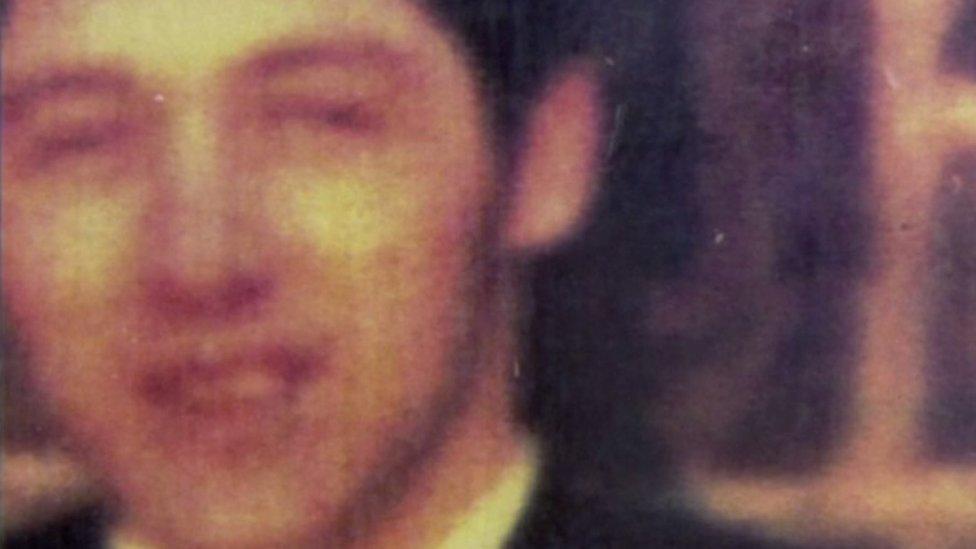Joseph Parker inquest: Army used 'unjustified' force
- Published

Joseph Parker's daughter Charlene said the verdict was "closure" for the family
The Army used unjustified force on the night a man was fatally shot by soldiers at a north Belfast dance in 1971, a coroner has ruled.
Joseph Parker, 25, was shot in the thighs in Toby's Hall in Ardoyne.
He was the father of an 18 month old and his wife was expecting a second child.
The coroner told an inquest that Mr Parker posed no threat to the soldiers who had entered the community hall.
Joe McCrisken added that the soldier that fired the shot had not deliberately targeted Mr Parker but had deliberately fired a shot and acted "recklessly".
Mr Parker's family said they "never once doubted the outcome".
"It is devastating but we are elated. It's closure for us now," said Charlene Parker, the victim's daughter.

Joseph Parker's daughter Charlene said the verdict was "closure" for the family
The inquest was the second one held into the death of Mr Parker.
The original 1972 inquest had given an open verdict.
However, a fresh inquest began following an order by Attorney General John Larkin.
The Parker family's lawyer said that the "original inquest was deeply flawed" and that Friday's ruling was a "proper legal verdict".
'Inadequate planning'
As part of the new inquest, the coroner reviewed statements from both civilians and the Army and listened to fresh evidence from witnesses who had never previously made statements.
Mr McCrisken said he relied mostly on the post-mortem examination results and statements made by both the Army and civilians at the time of the shooting.
Speaking about the evidence from new witnesses, he said, "recall after almost half a century is most likely to be inaccurate and unreliable".
In his findings, the coroner said the Queens Lancashire Regiment foot patrol army had gone to Toby's Hall in search of a wanted man.
Mr McCrisken said they "not anticipated that there would be so many people present".
He said he was satisfied that there had been "inadequate planning" on behalf of the Army.
'Powder keg'
He added that this lack of planning not only risked the lives of those on patrol but also the civilians inside.
Six soldiers entered the hall and the coroner described the atmosphere as extremely hostile.
"The situation in the hall can best be described as a powder keg. The military presence ignited the fuse with tragic consequences," he said.
Soon after, there were scuffles between dancers and the Army and at least two of the soldiers were attacked with bottles and chairs.
Mr McCrisken said "evidence from both the soldiers and from a number of civilian witnesses supports this view".
Several of the soldiers then fired warning shots into the ceiling.
He said what happened next "was less clear".
"I am satisfied that Mr Parker was shot after the initial warning shots into the ceiling were fired," Mr McCrisken said.
'Acting recklessly'
"The bullet which struck him was not aimed at the ceiling but was fired horizontally at a height of 26ins from the ground.
"At the inquest it was shown to my satisfaction that a soldier kneeling and aiming with a weapon in this position is the most likely to have fired the shot which struck Mr Parker."
He added that he was satisfied that the shot was fired deliberately but that "Mr Parker was not deliberately targeted".
"In other words, this soldier was acting recklessly when he fired shots at such a low level in a hall half full of civilians."
He added: "I have not been presented with any evidence which suggests that Mr Parker posted any threat, either direct or indirect, to the military patrol.
"I am satisfied, therefore, that the force used against Joseph Parker was not justified since he posed no threat to members of the patrol."
- Published22 November 2017

- Published16 November 2017

- Published14 November 2017
